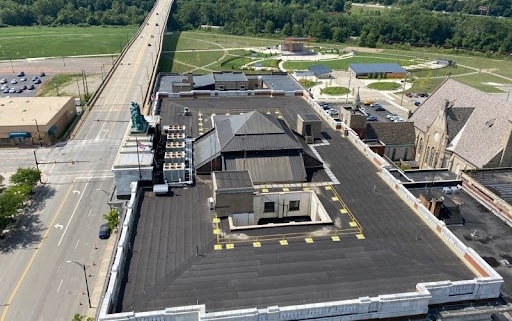At The Builders Association, we stress the importance of building codes and regulations because they play a crucial role in ensuring the safety, integrity, and functionality of structures. They provide a framework of standards and guidelines that builders must adhere to during the construction process. However, navigating through the complexities of these principles can be challenging for both experienced and novice builders. In this blog, we will provide a comprehensive guide to understanding building codes and regulations, empowering builders to comply with the requirements and create structures that meet the highest standards of safety and quality.
The Purpose of Building Codes
Building codes are a set of regulations established by government authorities or professional organizations to safeguard public health, safety, and welfare. They aim to prevent hazards, ensure structural stability, promote energy efficiency, and address accessibility requirements. Building codes cover various aspects of construction, including structural design, fire safety, electrical systems, plumbing, ventilation, and more. By adhering to these standards, builders contribute to the creation of safe, resilient, and sustainable buildings.
Types of Building Codes
Building codes can vary depending on the jurisdiction and the type of construction project. Commercial construction projects differ in code regulations from residential or industrial construction. Common types of building codes include:
- International Building Code (IBC): The IBC provides comprehensive regulations for commercial and residential buildings. It covers structural design, fire safety, means of egress, accessibility, and other aspects of construction.
- National Electrical Code (NEC): The NEC focuses on electrical systems, providing guidelines for the safe installation and use of electrical equipment, wiring, and devices.
- International Residential Code (IRC): The IRC specifically addresses residential buildings, including single-family homes and townhouses. It covers structural requirements, energy efficiency, and safety considerations for residential construction.
- Plumbing Codes: Plumbing codes govern the installation, maintenance, and inspection of plumbing systems, ensuring proper sanitation, water supply, and drainage.
Compliance and Permits
Builders must obtain permits before commencing construction to ensure compliance with building codes. Permitting processes involve submitting construction plans and specifications to local building departments for review and approval. Inspections are typically conducted at various stages of construction to verify compliance with the approved plans. Adhering to the permitting process helps ensure that the construction project meets the required standards and avoids potential legal issues.
Keeping Up with Code Updates
Building codes are regularly updated to address new technologies, research findings, and emerging safety concerns. It is crucial for builders to stay informed about these updates to ensure compliance with the most current standards. Building departments, professional organizations, and industry publications are valuable sources of information regarding code changes and updates. Continuing education and professional development programs also provide opportunities for builders to enhance their knowledge and skills in navigating evolving codes and regulations.
Furthermore, codes vary state to state, so it is important to ensure that job sites in different states meet the specific requirements of that state. For example, Ohio’s building codes can be found at the Ohio Department of Commerce website.
Collaborating with Building Professionals
Builders often work in collaboration with architects, engineers, and other building professionals who possess specialized knowledge in code compliance. Engaging these experts during the design and planning stages can help identify potential code issues early on, streamline the permitting process, and ensure that the construction project meets all relevant regulations. Building professionals can provide valuable insights, offer solutions to code challenges, and guide builders in making informed decisions throughout the construction process.
Understanding building codes and regulations is essential for builders to construct safe, compliant, and high-quality structures. By familiarizing themselves with the applicable codes, obtaining necessary permits, and collaborating with building professionals, builders can navigate the complexities of code compliance successfully. Building codes exist to protect the well-being of occupants, promote sustainability, and uphold industry standards. By embracing the importance of building codes, builders contribute to the creation of structures that stand the test of time and provide a safe environment for generations to come. The Builders Association membership directory has a variety of available construction contractors that provide professional, quality services that are fully compliant with building codes. For more information about how to find the write contractor, refer to our blog – Hiring a Contractor: How it Works.


